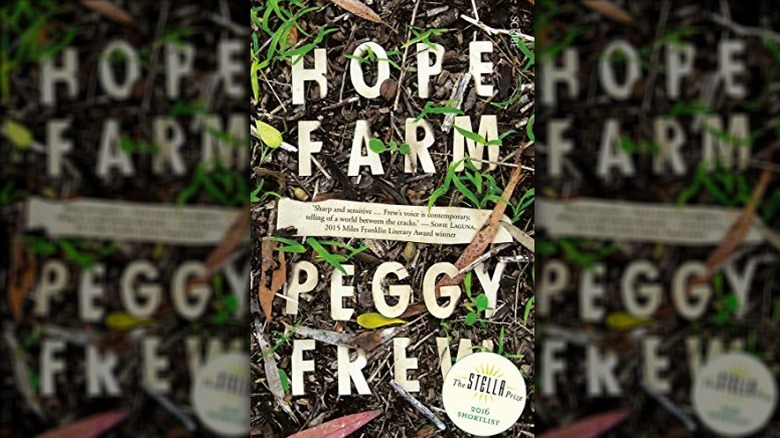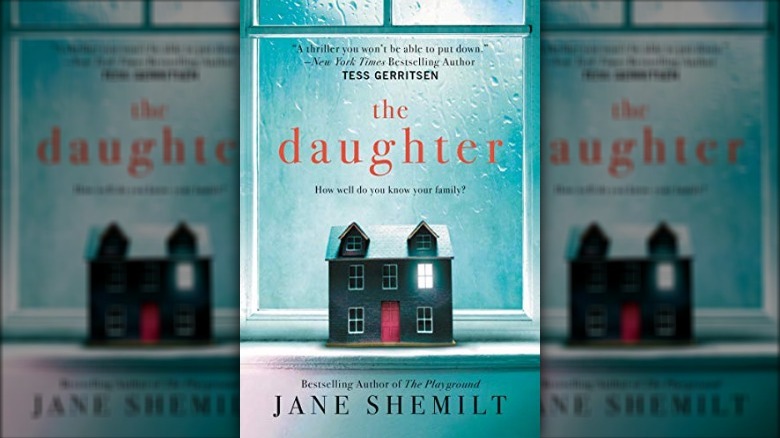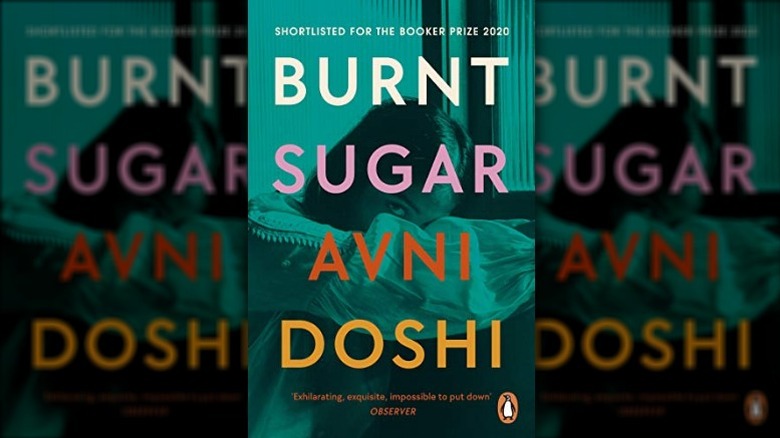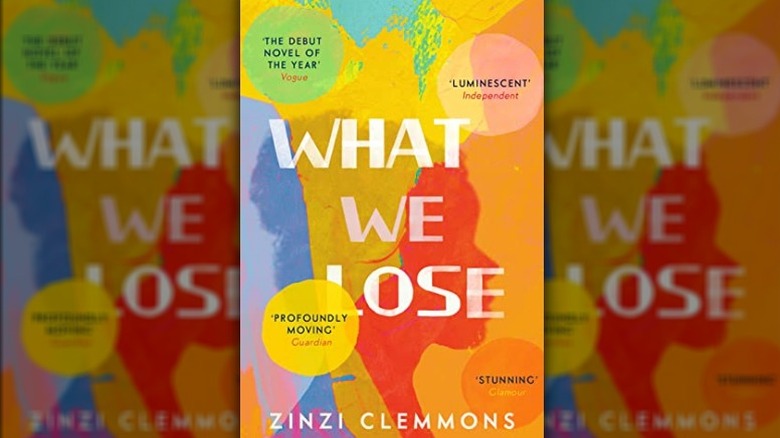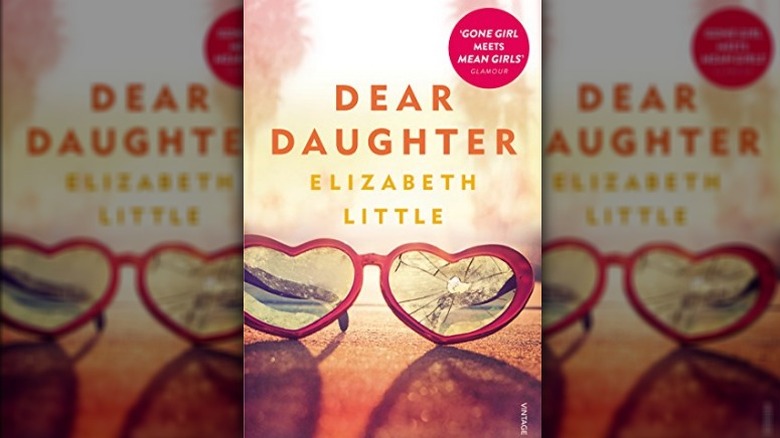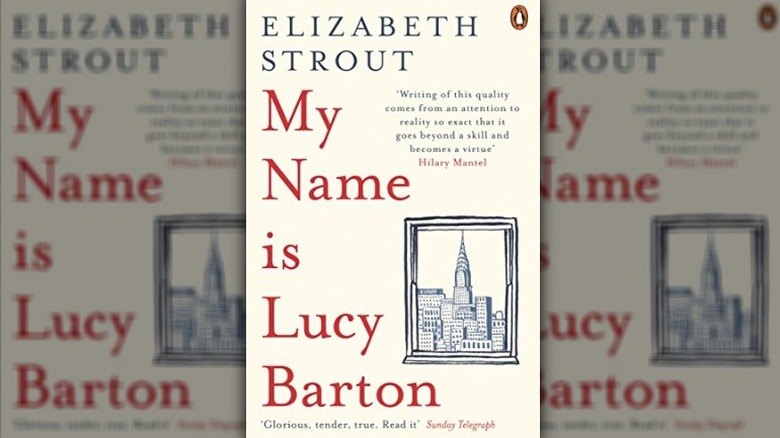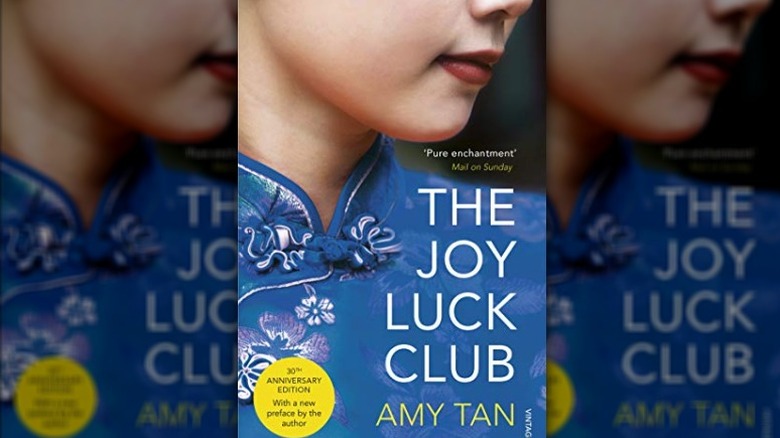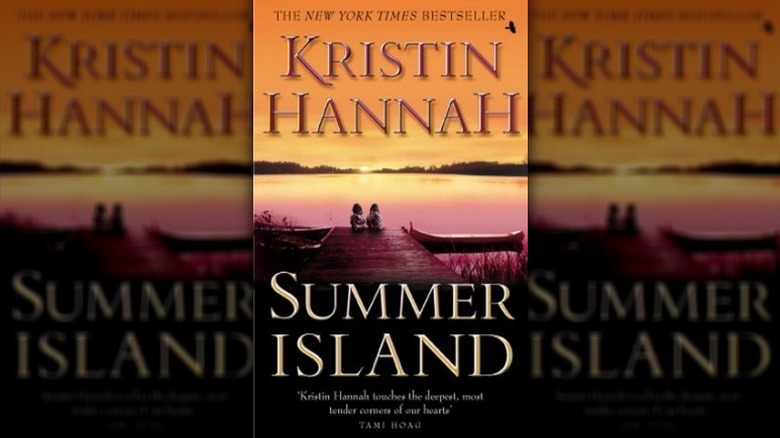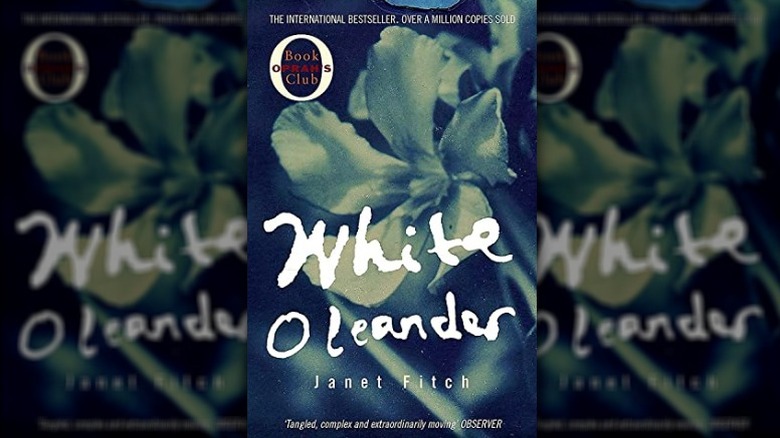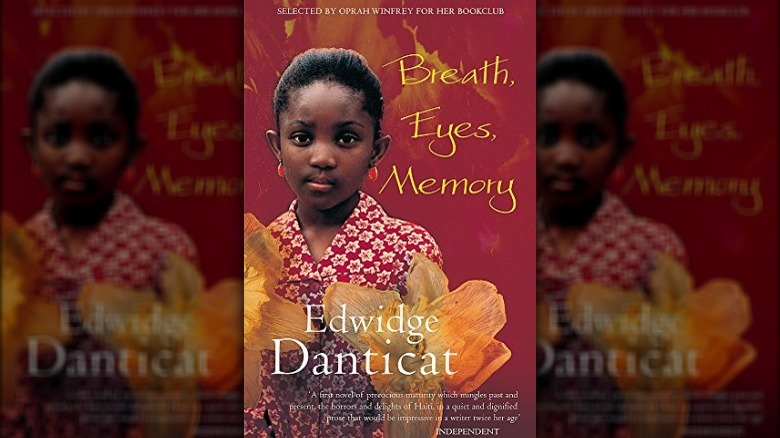10 Books That Get The Complex Relationship Between Mothers And Daughters
We may receive a commission on purchases made from links.
It's no secret that many mothers and daughters have some pretty complicated relationships. We see mothers and daughters falling out pretty much all over the place (just tune into an episode of "The Kardashians"), but that doesn't mean that many mother/daughter duos don't love each other just as much as they fall out. But why does it seem like this can be one of the toughest relationships in life? Well, as author Jane Davis put it on her blog, "The fact that we prize the mother-relationship so highly places it under immense pressure, sometimes even before it begins." In that sense, in many cases, mothers may already have a pre-existing idea of what their relationship with their daughter should be like, and, when it doesn't happen that way, it can make for all sorts of tension.
This typically rollercoaster relationship, of course, has set the scene for many movies, TV shows, and books over the years, the latter of which Women.com is going to be taking a look at today.
Hope Farm by Peggy Frew
Set in the 1980s, Peggy Frew's 2019 book "Hope Farm" tells the story of mother/daughter duo Silver and Ishtar. It focuses on the complications of their relationship as they move together to a dilapidated property against Silver's wishes. We see Silver making her way through life as a young teenager as she deals with the big move and her mom's new romance, only to find herself having to deal with a lot of adult situations while Ishtar struggles to be the mother her daughter needs.
The story is told from Silver's point of view, something Frew intended from the start when she began writing, though she admitted her desire to incorporate Ishtar more into the story came later. "I originally wrote the whole thing from Silver's perspective, but at some point, I realised that we needed to hear Ishtar's story in Ishtar's own voice. Because she is so closed and incommunicative, if we only ever saw Ishtar through Silver's eyes we couldn't find out what her history is, how she's ended up being the kind of mother she is," the author explained to Shiny New Books. She added that desire came from a place of needing to learn more about her in order to better understand why she makes the decisions she does as a mother. "Not necessarily to forgive her, but at least to see how she got where she ends up," Few noted.
The Daughter by Jane Shemilt
Jane Shemilt had a major hit on her hands when she released "The Daughter" in 2014. The book puts a sharp focus on the relationship between a mom, Jenny, and a daughter, Naomi, after the latter goes missing. As a desperate Jenny tries to find her daughter, she quickly begins to realize as she uncovers more about her life that maybe she didn't know her in the way she thought she did. Speaking about the novel's impressive success around the world, Shemilt explained to B24/7, "The characters felt real they said and people were gripped by the fact that Jenny gradually realizes that she didn't know anyone in her family. The central question, what had happened to the missing girl, kept the pages turning."
Throughout the story, Jenny goes on a rollercoaster of emotions, something Shemilt aimed for right from the start to highlight the difficulties that can come with being a mother — particularly when you don't know where your child is. "Jenny's character undergoes a transformation," the author told Female First. "The voice of the woman she was and the one she becomes, alternate through successive chapters."
Burnt Sugar by Avni Doshi
In "Burnt Sugar," Avni Doshi details a pretty tense relationship between a mother, Tara, and a daughter, Antara, after the former's health takes a turn for the worst when she begins to experience the early stages of dementia. That results in Antara taking on the role of being her mom's caretaker, though she begins to struggle with what she's tasked with doing after memories of her childhood flood back. She begins to resent the fact that she felt her mom never really cared for her properly when she was growing up.
"It's no secret that mother-daughter relationships can be fraught and full of conflict, but somehow the conversation still elicits discomfort. Ambivalence in a mother is too dangerous for the culture to integrate — a relationship understood as originary and natural should be automatic, a reflex, and there is very little room for complexity," Doshi explained to The Booker Prize, detailing the complicated relationship Tara and Antara share. "It comes down to how much agency a woman is supposed to have, and what feelings she is allowed. There isn't a place to put maternal resentment. Or maternal regret."
What We Lose by Zinzi Clemmons
Thandi is a young woman whose life changes dramatically in Zinzi Clemmons' book, "What We Lose," as she has to press the pause button on her college life in order to care for her mother who has cancer. As Clemmons leaves her life and independence in a new city behind to be there for her mom, she has to deal with the harsh reality that she'll have to go on without her mom by her side.
Heartbreakingly, the story actually holds a lot of parallels to Clemmons life, as she too returned to her home state to care for her mom during her own experience with cancer. Sadly, Clemmons' mom died around the time she started writing the book. "I've always written in a fragmented style. Again, this is one area where Thandi and I match up: we don't see the world as continuous, and have a hard time confining any idea to a single narrative," Clemmons explained to The Feminist Library. "The fact that the book also addresses grief — and the specific way I wrote this book — adds another layer of fragmentation and questioning. In that way, the form of the book kind of naturally conforms to its subject matter."
Dear Daughter by Elizabeth Little
Elizabeth Little tells a gripping tale in "Dear Daughter" about if Jane Jenkins really is capable of killing her own mom. The novel picks up with Jenkins a decade after she's convicted for her mom's murder when she's released from prison. After a decade inside, she makes it her mission to find out what really happened to her mom. But that's made a whole lot more complicated by the fact she has absolutely no recollection of the night her mom died — and she never really liked her in the first place.
Little opened up about her inspiration for the chilling story to The Lit B***h, admitting Jane was inspired by someone from the real world — None other than Amanda Knox. The author started to get the idea for the character after hearing of Meredith Kercher's murder, with Knox's name all over the headlines. "I couldn't sleep that night I was so busy thinking about what she would do next — she was just so infamous! Would she just try to go back to her life as it was before she moved to Italy? Would she go the reality-TV route? Or would she take on an entirely new identity and try to start fresh? That last option, obviously, was the one that intrigued me the most, and the next day I started to write about ... a girl who had just gotten out of prison and was preparing to take on a new identity," she shared.
My Name Is Lucy Barton by Elizabeth Strout
Imagine being isolated in a lonely hotel room, only to wake up from surgery to find your estranged mother at your bedside. Well, that's exactly what happens in Elizabeth Strout's "My Name Is Lucy Barton." Barton soon finds herself regaled with old stories about her childhood, as told by her mom, which makes her think back to why she felt it was necessary to lose touch with her mom and the rest of her family.
Strout spoke to Women's Prize for Fiction about the book, admitting that she actually never set out to write the story that came to be. "The inspiration for Lucy Barton came from initial scenes I kept playing with, having a mother and a daughter in that hospital room. I sort of never intended to write that book, it just kept coming to me and unfolding to me as I heard her voice. It was kind of a strange, and lovely, experience," she shared. "But the initial impulse had something to do with that mother at the foot of her bed in the hospital."
The Joy Luck Club by Amy Tan
The stories of Chinese mothers and their daughters is brought to light in Amy Tan's poignant book, "The Joy Luck Club." The book shares the story of a group of mother/daughter duos, putting the spotlight on their relationships after the moms moved from China to raise their little girls in the U.S. Though the moms try to give out some important life advice to their daughters, they refuse to listen because they don't think what their moms have to offer is all that relevant to their lives. After all, the way they're growing up in the U.S. is very different from the way they spent their young lives. Only, it turns out, all that advice comes more in handy than the women first thought.
Though "The Joy Luck Club," which was also developed into a movie in 1992, is not a memoir, it is pretty personal to Tan, as it's based a lot on her own relationship with her mom. "When I started writing 'The Joy Luck Club,' for some of the stories, I imagined what my mother was trying to say to me," the author explained to Harper's Bazaar.
Summer Island by Kristin Hannah
Ruby has been estranged from her mom, Nora, for years in Kristin Hannah's book "Summer Island." The two lost touch after Nora left Ruby and her mom, though Nora went on to become a very successful radio host. Only, her listeners don't know what really went on with her lost family. As the world starts to get more interested in Nora and following a scandal, Ruby is offered the opportunity to write all about her childhood and her mom for a big paycheck. Ruby then heads back home, to Summer Island where her mom lives, which then turns into a rollercoaster trip down memory lane.
Hannah has opened up about why so many of her books have similar themes (she also penned the likes of "Firefly Lane" and "The Nightingale"), and it turns out that's no coincidence. Speaking to The Novelry, she admitted, "There are themes and questions that I return to again and again. It's my version of therapy, I believe. It's obvious from my body of work that I am interested in women's lives and history, and the power of the relationships between women."
White Oleander by Janet Fitch
A favorite of Oprah Winfrey (it was even once chosen for her book club), the Janet Finch novel "White Oleander" focuses on Astrid and Ingrid's relationship. Astrid idolized her mom and thinks she can do no wrong, so when Ingrid is arrested for murdering her lover, it comes as quite a shock. With no father to take care of her, Astrid finds herself in foster care with the tough task of carrying on with her mom behind bars.
Speaking about Astrid, the protagonist, Fitch, admitted to Warwick that her relationship with her mom is still the most important in her life, even as the two become separated. "Her mother has both wounded her irredeemably and given her the strength to transcend those wounds," she explained. "Her attachment to Paul Trout, to a good kid her own age, is also extremely important. It's the only really healthy relationship she has."
Breath, Eyes, Memory by Edwidge Danticat
"I started 'Breath, Eyes, Memory' when I was still in high school after writing an article for a New York City teen newspaper about my leaving Haiti and coming to the United States as a child," author Edwidge Danticat told SheReads of why she wrote the "Breath, Eyes, Memory." "After the article was done I felt there was more to the story, so I decided to write a short story about a young girl who leaves Haiti to come to the United States to be reunited with her mother, who she doesn't really know. The story just grew and grew and as it grew I began to weave more and more fictional elements into it and added some themes that concerned me."
In the book, a young girl named Sophie moves to New York from Haiti to be with her mom. But while the culture clash is difficult, Sophie only struggles more when she starts to learn things about her mom and her life that she wishes she hadn't. Before long, she's yearning for her native country and the woman there who raised her as her own.

